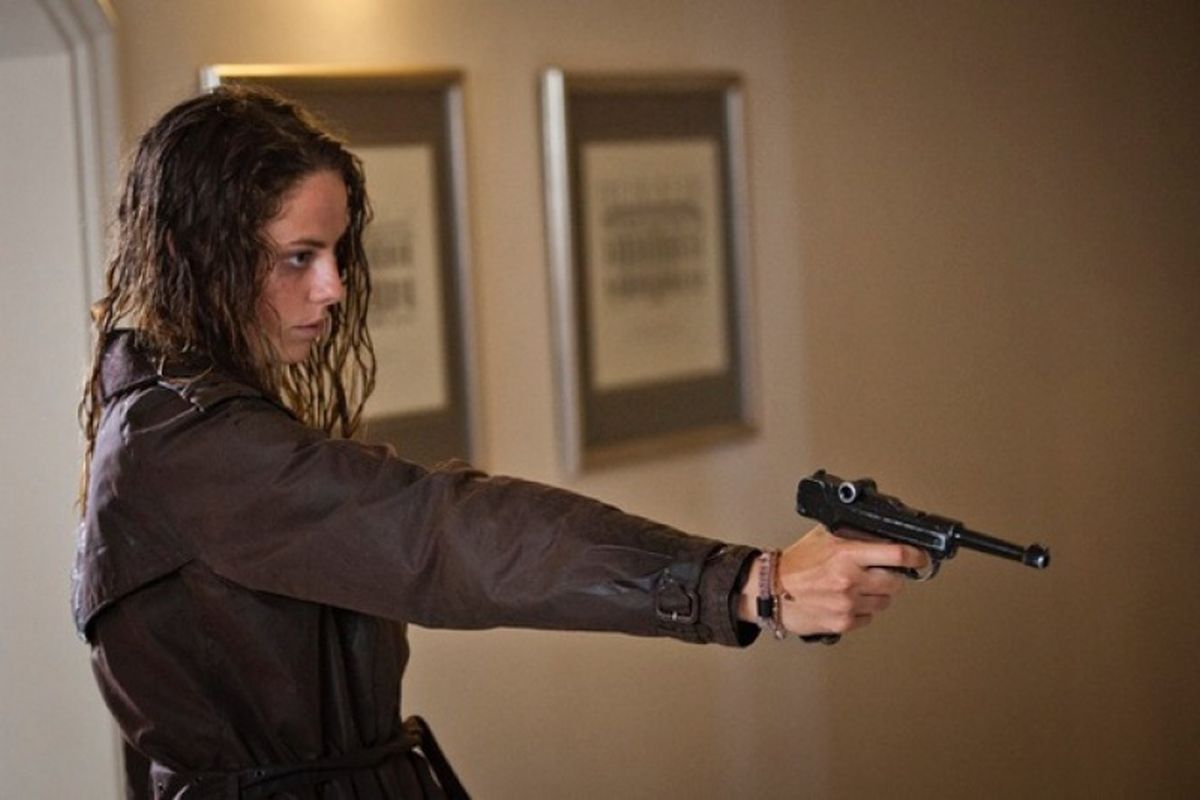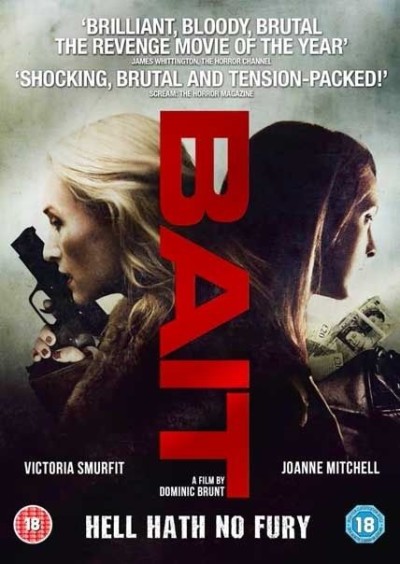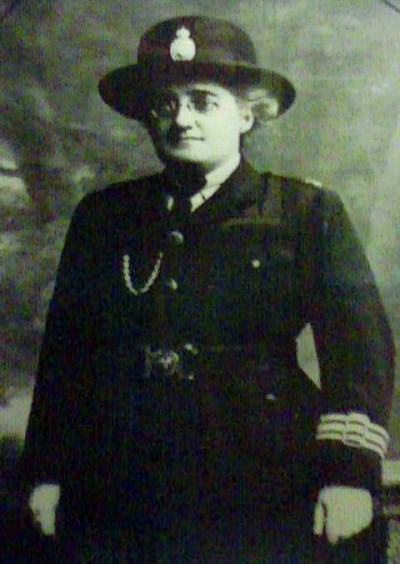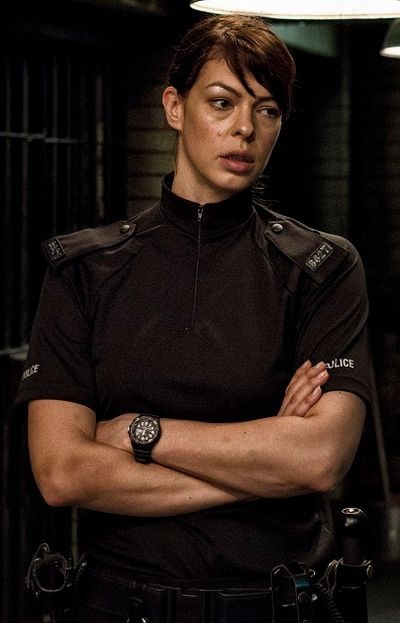★★
“Gratuitous violins.”
 Stacey and and Thom are on their way to a friend’s wedding, where she’ll also be providing the music, when their car breaks down. Stacey walks back to a garage they passed, but while she’s away. Thom is accidentally shot by father and (unwilling) son hunting duo, Weaver (Coughlan) and Rex (Smith). Realizing their victim was not alone, they wait for Stacey to return, so her presence as a loose end can be tidied up. But Rex’s reluctance to pull the trigger gives her a lifeline, and begins a game of cat-and-mouse through a remote, wooded area of the Derbyshire Peak District.
Stacey and and Thom are on their way to a friend’s wedding, where she’ll also be providing the music, when their car breaks down. Stacey walks back to a garage they passed, but while she’s away. Thom is accidentally shot by father and (unwilling) son hunting duo, Weaver (Coughlan) and Rex (Smith). Realizing their victim was not alone, they wait for Stacey to return, so her presence as a loose end can be tidied up. But Rex’s reluctance to pull the trigger gives her a lifeline, and begins a game of cat-and-mouse through a remote, wooded area of the Derbyshire Peak District.
I guess the aim is something like a British version of Deliverance, but the resources aren’t there – and neither are the performances, direction and script, none of which reach above workmanlike at best. The worst offender is the script, which frequently had me rolling my eyes at the stupidity of the characters, who frequently behaved in ways that made no sense in real-life, purely for cinematic purposes. Not the least of these is the way Stacey suddenly opts to start carrying her precious violin around with her for the final sequence, having not apparently given a damn about it before that point. You don’t have to be a seer to predict why this is needed.
The idea isn’t a bad one, and the cinematography is solid, with the locations used photogenic. However, the action is nothing short of awful, possessing absolutely no impact. While Crevel’s performance as Stacey is okay, she needs to be a much more pro-active heroine, trying to turn the tables on her attacker. Instead, she spends the first hour doing virtually nothing but running away, save for dropping a sign with a nail on it, hoping Weaver will stand on it. [Spoiler alert: inevitably, he does!] Coughlan does exude a nice, unhinged menace as the villain, and the script does attempt to give him both motivation and a back-story. Unfortunately, this isn’t conveyed organically, rather in large gobbets of monologue that tend to bring the film to a halt.
Clocking in at 75 minutes, including credits, is likely a wise decision given the paucity of the material present. It’s clear the budget here was limited – simply because how expensive can four people running around a forest be? Lawson deserves credit for not letting those resources be too obvious. On the other hand, money doesn’t excuse the apparent lack of effort put into a lazy script, apparently worked out on the back of a beer-mat one Friday lunch-time. The fact it had different titles while shooting (Rites of Passage), from its limited cinema run, then a third name for its DVD release, is perhaps another indication more forethought would have been helpful.
Dir: Steve Lawson
Star: Helen Crevel, Andrew Coughlan, Sam Smith, Jay Sutherland
a.k.a. Footsoldier





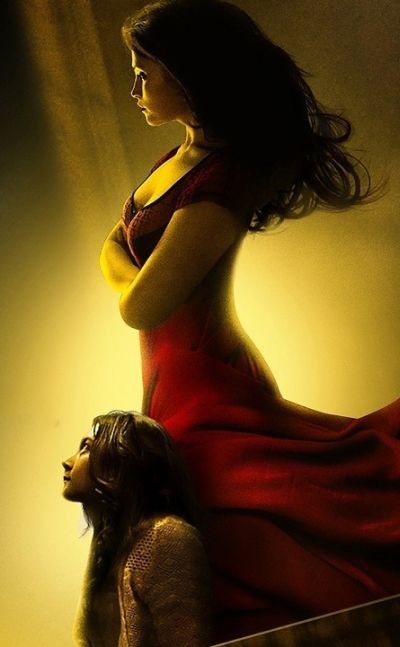 Ok, that’s probably not strictly accurate, but there is more than a hint of it, in the way this manages to combine period drama with Gothic horror trappings – while also depicting the same characters in the present day. This slipping back and forth in time is somewhat distracting, and there are points where you wish they had just picked an era and stuck with it. The heroines here are a pair of mother and daughter vampires (Arterton and Ronan), who have been more or less on the run for about two centuries. For the mother, Clara, was a terminally-ill prostitute who stole the secret of vampirism from her client, Captain Ruthven (Jonny Lee Miller) in the early 19th century. She not only became immortal herself, she turned her daughter, Eleanor – an act strictly against the tenets of The Brethren, who are kinda like the vampire union, who put out a death-warrant on the pair. In the present day, this means Clara – still turning tricks to provide for Eleanor – has occasionally to decapitate people with a garrotte, should they turn out to be hunters sent by The Brethren.
Ok, that’s probably not strictly accurate, but there is more than a hint of it, in the way this manages to combine period drama with Gothic horror trappings – while also depicting the same characters in the present day. This slipping back and forth in time is somewhat distracting, and there are points where you wish they had just picked an era and stuck with it. The heroines here are a pair of mother and daughter vampires (Arterton and Ronan), who have been more or less on the run for about two centuries. For the mother, Clara, was a terminally-ill prostitute who stole the secret of vampirism from her client, Captain Ruthven (Jonny Lee Miller) in the early 19th century. She not only became immortal herself, she turned her daughter, Eleanor – an act strictly against the tenets of The Brethren, who are kinda like the vampire union, who put out a death-warrant on the pair. In the present day, this means Clara – still turning tricks to provide for Eleanor – has occasionally to decapitate people with a garrotte, should they turn out to be hunters sent by The Brethren.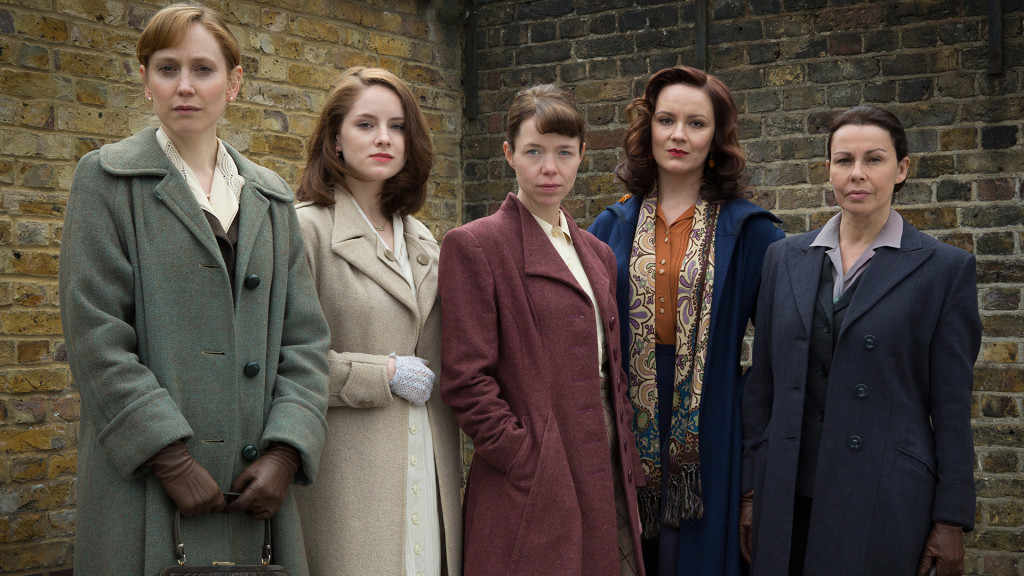
 Set in the early 1950’s, this was a brief – seven episodes over two seasons – but very effective TV series, with heroines who used brains, rather than brawn, to solve crimes which the authorities are either unable or unwilling to address. The origins of the group were during World War II, when their analytical skills were put to vital use, cracking German communications, out of the then-secret Bletchley Park base. But after the war, the women returned to normal lives; Susan Gray (Martin) is now married, a mother of two, and uses her talents for nothing more taxing than crosswords. But she is intrigued by a series of serial murders, and detects an apparent pattern in them. When her attempts to through official channels are met with little more than a pat on the head and a suggestion to return to the kitchen, she contacts her colleagues from Bletchley, who begin gathering and analyzing information on their own. This makes use of the skills each has: for instance, Jean (Graham) works as a librarian, while Lucy (Rundle) has a photographic memory, and asks as the group’s computer database.
Set in the early 1950’s, this was a brief – seven episodes over two seasons – but very effective TV series, with heroines who used brains, rather than brawn, to solve crimes which the authorities are either unable or unwilling to address. The origins of the group were during World War II, when their analytical skills were put to vital use, cracking German communications, out of the then-secret Bletchley Park base. But after the war, the women returned to normal lives; Susan Gray (Martin) is now married, a mother of two, and uses her talents for nothing more taxing than crosswords. But she is intrigued by a series of serial murders, and detects an apparent pattern in them. When her attempts to through official channels are met with little more than a pat on the head and a suggestion to return to the kitchen, she contacts her colleagues from Bletchley, who begin gathering and analyzing information on their own. This makes use of the skills each has: for instance, Jean (Graham) works as a librarian, while Lucy (Rundle) has a photographic memory, and asks as the group’s computer database.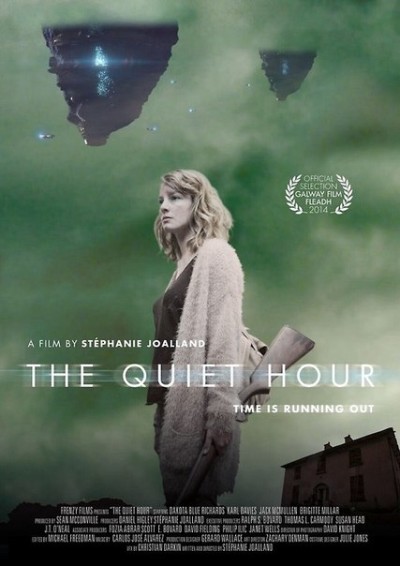
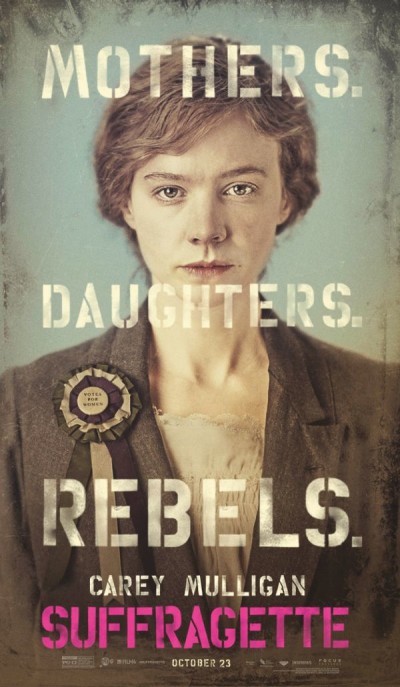
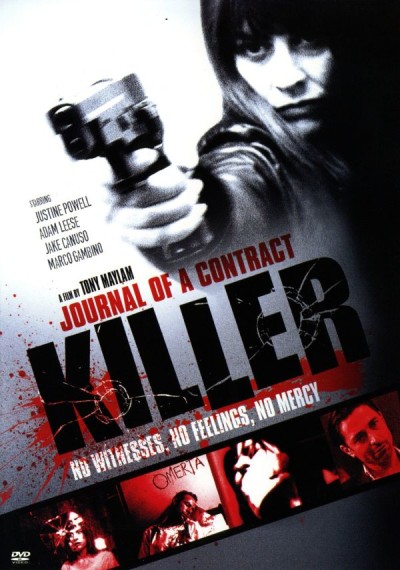 Stephanie (Powell) had been an assassin for the Italian Mafia, but had abandoned that life and settled down in London with her daughter. Years later, she is shocked to see her former lover, Alessandro (Canuso) show up at her job, and even more so when she gets an order she can’t refuse from her old employer, Franco (Gambino) – to kill Alessandro. Despite some qualms, not least how the family will react to her taking out one of their own, Stephanie carrier out the mission. But soon after, she finds herself being watched by the enigmatic Sam (Leese), who says he is there to protect her. Is that really the case, or does he have an entirely different purpose?
Stephanie (Powell) had been an assassin for the Italian Mafia, but had abandoned that life and settled down in London with her daughter. Years later, she is shocked to see her former lover, Alessandro (Canuso) show up at her job, and even more so when she gets an order she can’t refuse from her old employer, Franco (Gambino) – to kill Alessandro. Despite some qualms, not least how the family will react to her taking out one of their own, Stephanie carrier out the mission. But soon after, she finds herself being watched by the enigmatic Sam (Leese), who says he is there to protect her. Is that really the case, or does he have an entirely different purpose?